Tesla Powerwall 3 Rebate Now Available - Combine with Federal Subsidy Today
Tesla Powerwall 3 Rebate Now Available - Combine with Federal Subsidy Today
Posted 19 Mar
Finding the right battery for your property is already hard enough with hundreds of brands to choose from, let alone technical aspects like 'AC-coupling' and 'DC-coupling'? What does that even mean?
The good news is that it is much easier to understand than it sounds. Let's explore battery coupling, and how your solar system and configuration will determine how you use your energy.
The term 'coupled' or 'coupling' is simply another way of saying connected. 'AC coupling' and 'DC coupled' is the way the battery storage is integrated/connected to your new or existing solar system.
Why is coupling important? Your solar generates DC power, which needs to be converted into AC power for your home. An AC or DC-coupled battery refers to when and how many times your power is converted between AC and DC.
What does AC-Coupled mean? AC-coupling is when a battery is connected after the inverter as it has its own built-in inverter. AC-coupled batteries are generally used for retrofitting to existing systems.
What is a DC-Coupled battery system? DC-coupled solar batteries are when the battery is directly connected to a hybrid inverter which manages both the solar and battery. This is the ideal choice for new system installations.
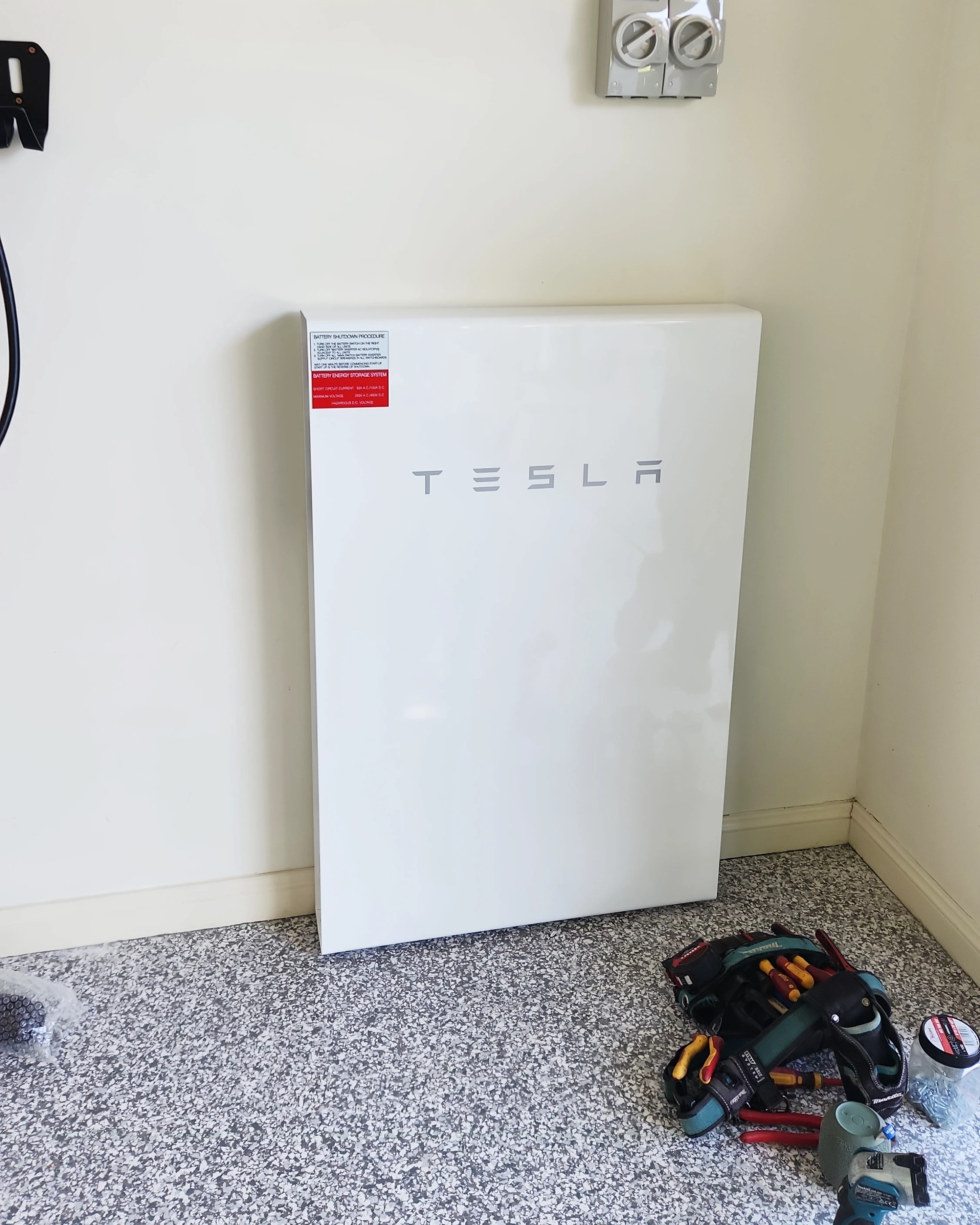
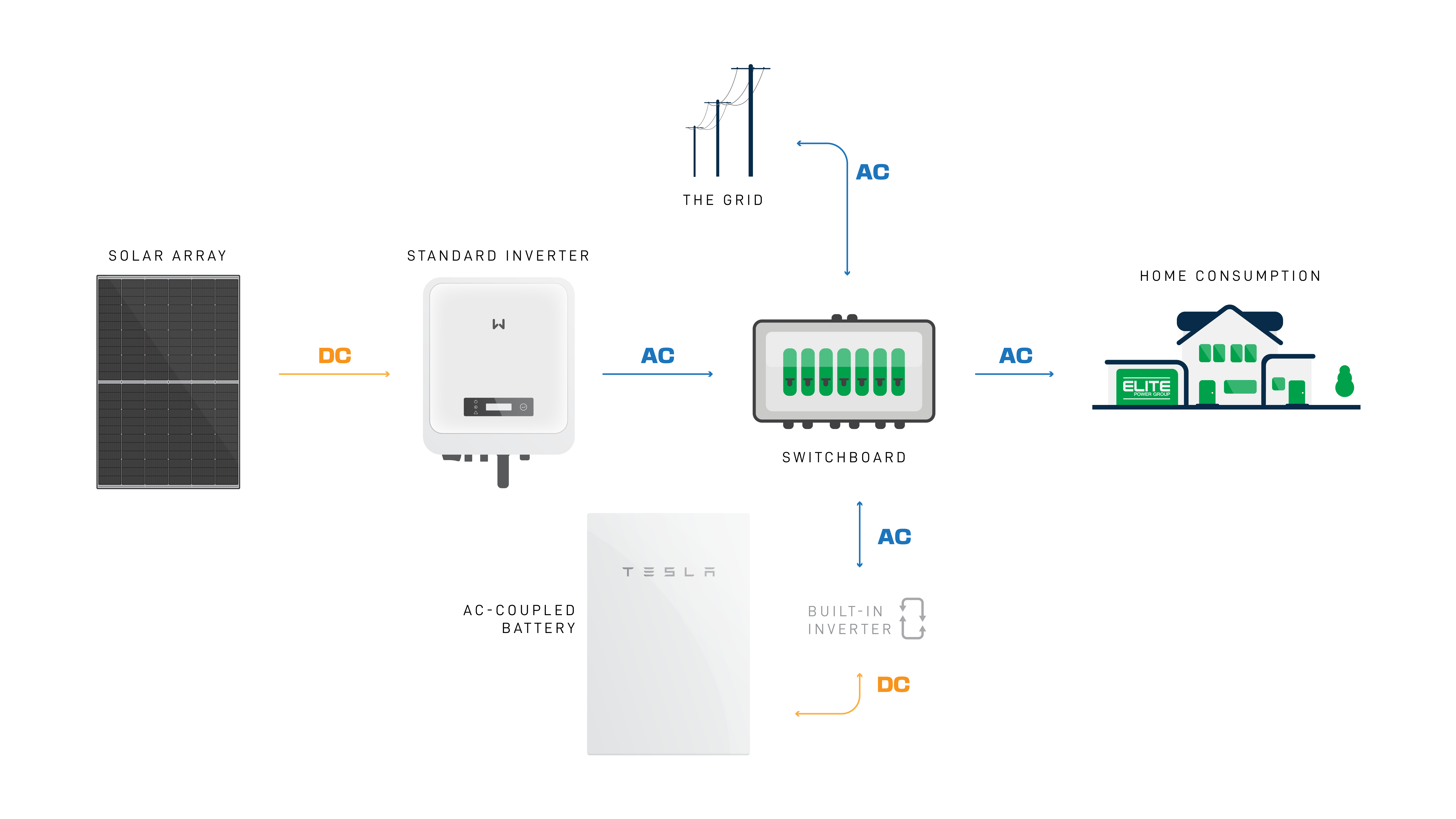
Using this AC-coupled battery diagram, you can see that the solar and inverter system is separate to the battery. In this arrangement, the AC-coupled battery is retrofitted to the existing system, and looks after its own DC and AC energy conversion with the built-in inverter.
Because the AC-coupled battery has its own built-in inverter, this removes the requirement for a hybrid inverter which enables broader
compatibility and accessibility for existing system owners.
Advantages |
Disadvantages |
|
|
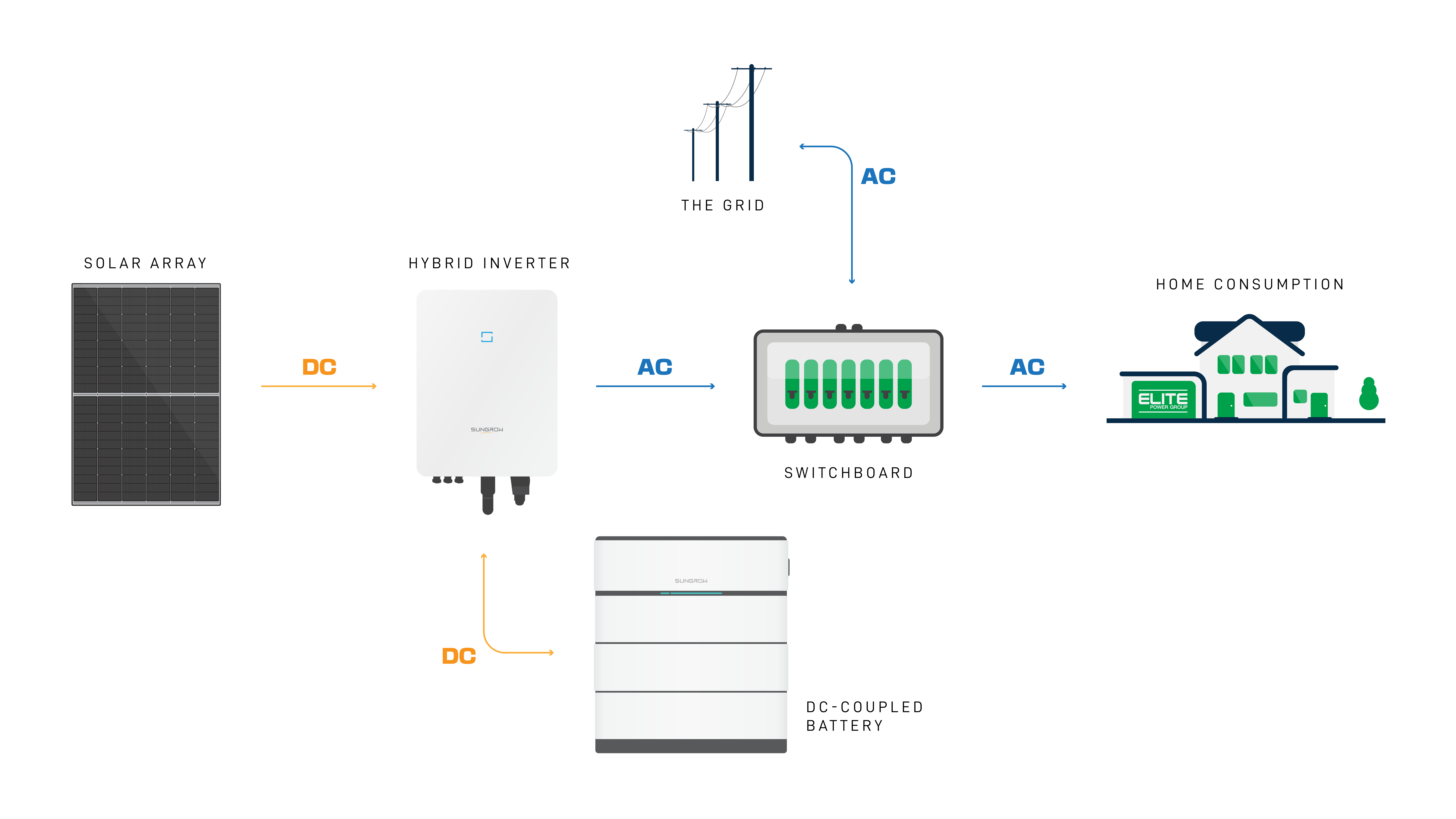
Unlike an AC-coupled system, a DC-coupled system is directly integrated with a compatible, battery-ready hybrid inverter which essentially looks after managing the battery and solar generation in one unit.
The hybrid DC-coupled battery system is configurable and customisable to either send the DC energy straight to the battery, or convert
the DC power into AC for home appliances or feeding to the AC grid. Because of the reduced amount of conversions, it also increases
efficiency.
Advantages |
Disadvantages |
|
|
It can be hard to find information on what batteries are AC-coupled and DC-coupled, so we've listed the batteries we install below and their coupling. To have DC-coupling available for your property, you will need a hybrid inverter (more in this later).
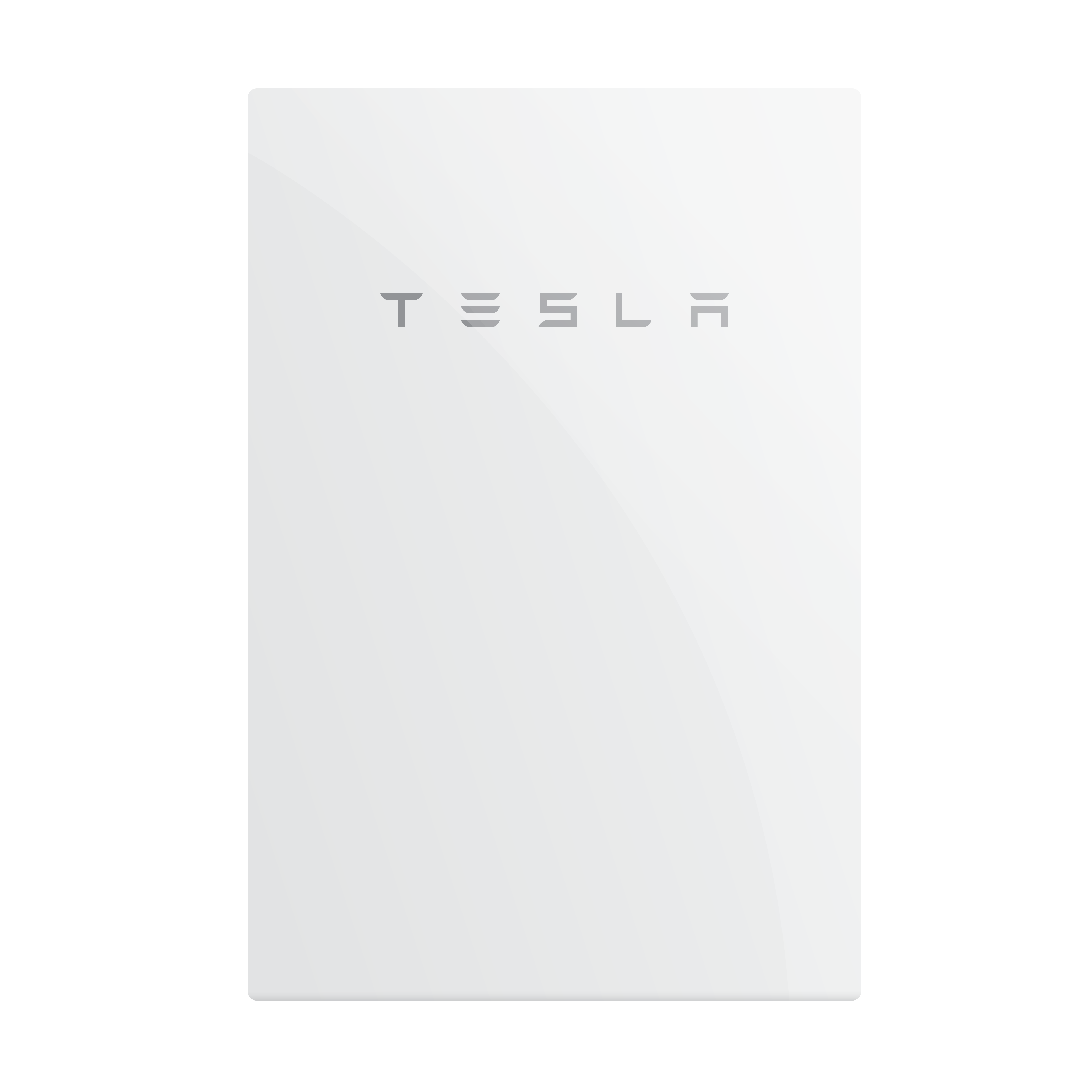
Tesla Powerwall 2 is an AC-coupled battery system that can invert its own energy to charge and discharge, designed to be retrofitted to homes throughout Australia.
![]()
Like its predecessor, Tesla Powerwall 3 also offers AC-coupling compatibility, but can also be DC-coupled with its own built-in solar inverter.
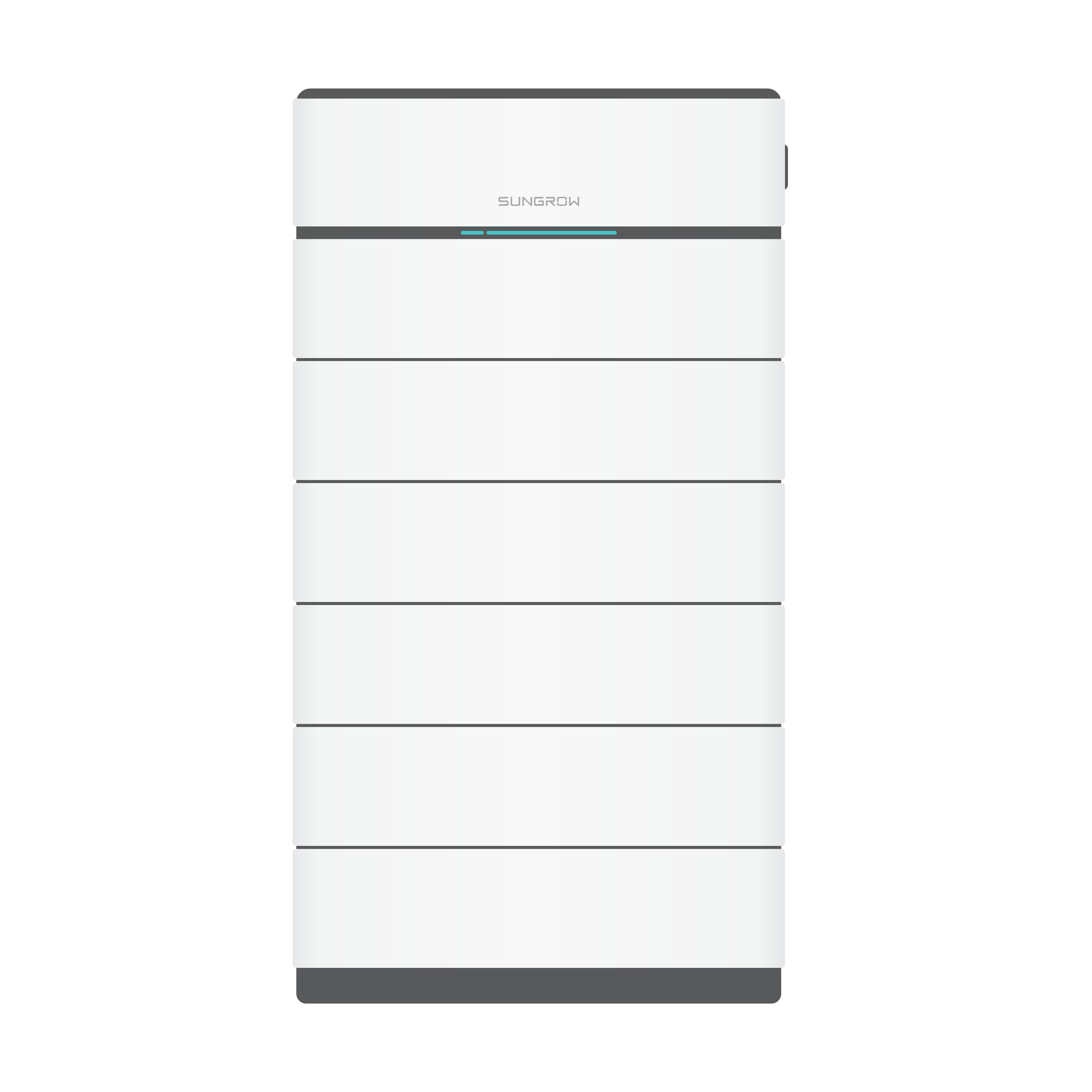
Sungrow's SBH series provides both AC-coupling and DC-coupling compatibility, making it a good all-rounder for homes in Australia.
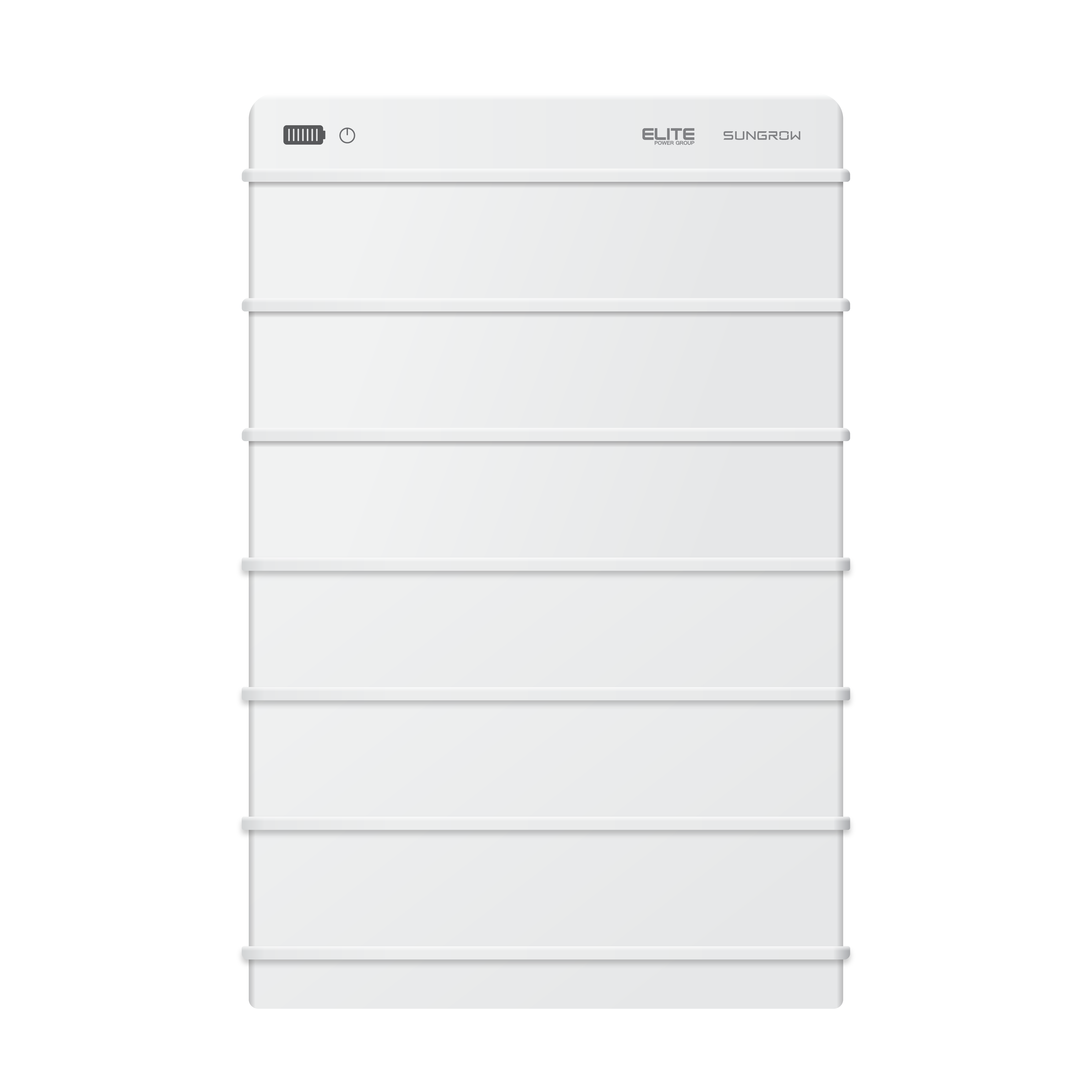
In addition to the SBH series, the Sungrow SBR series can be also DC-coupled or AC-coupled depending on its configuration.
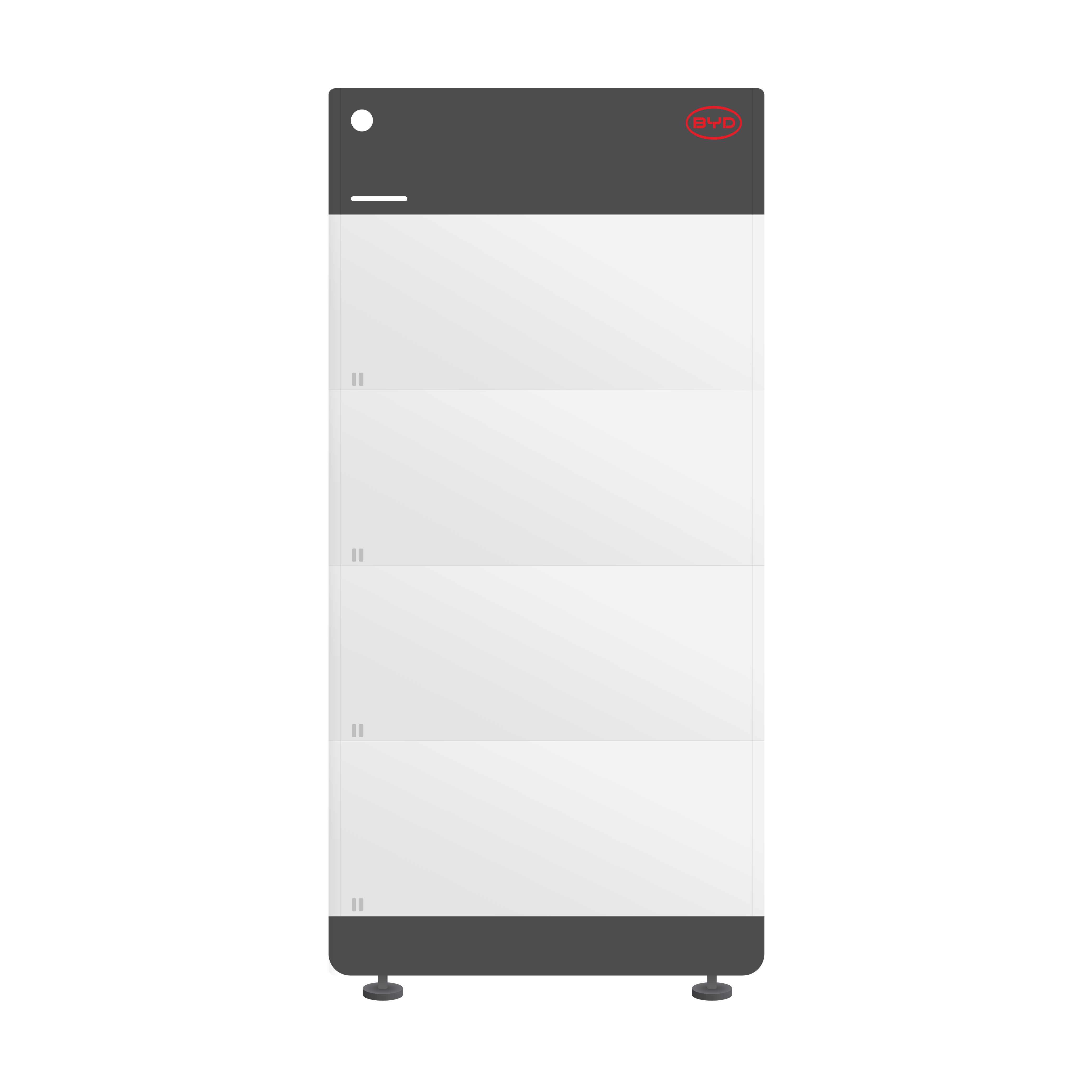
With modular and expandable energy storage options from 8.1kWh to 21.7kWh, BYD Battery-Box can be AC-coupled and DC-coupled to homes in Australia.
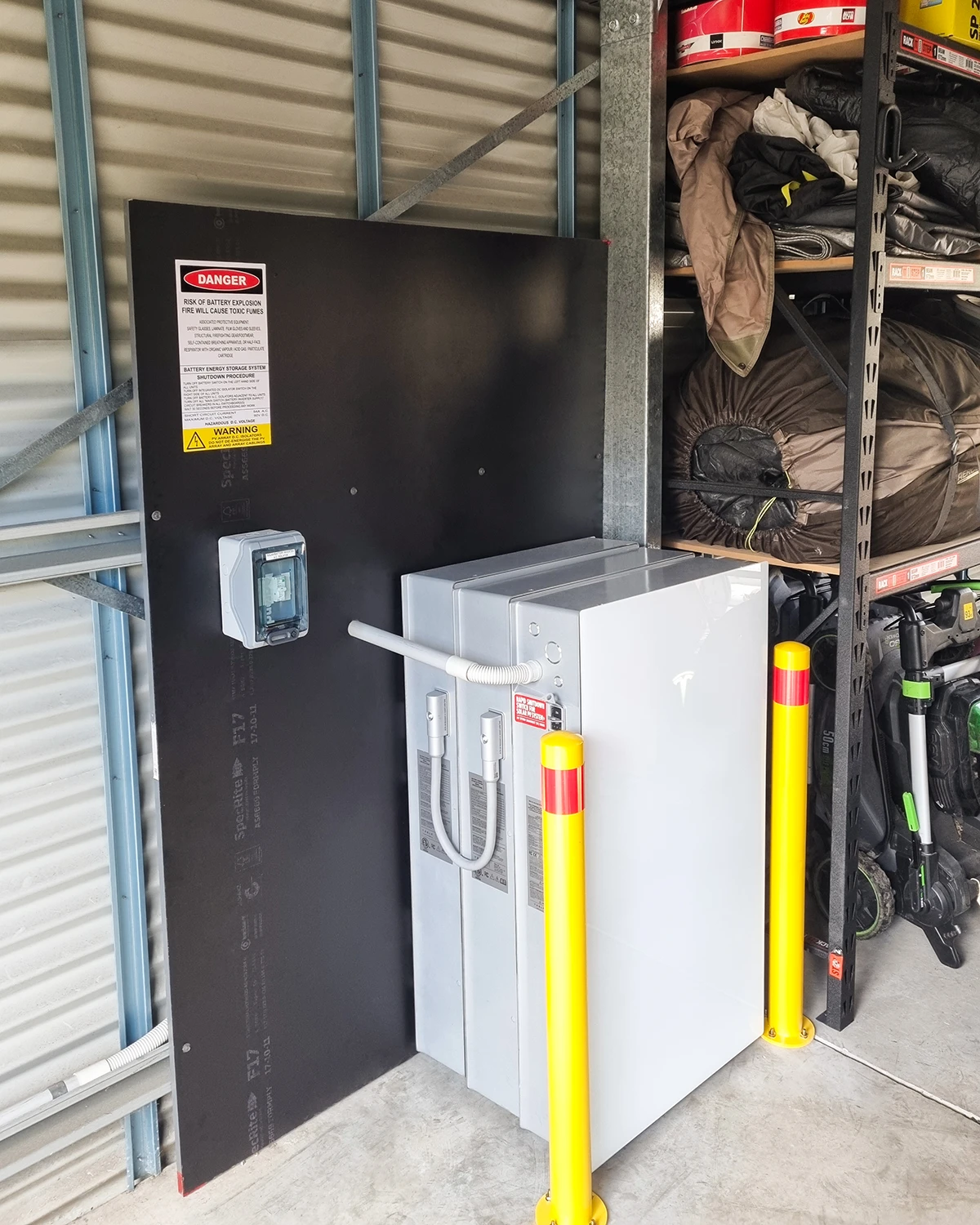
DC-coupled battery systems generally outperform AC-coupled systems due to their better energy efficiency.
Because DC-coupled energy storage requires fewer conversions between AC and DC, it means that more energy can be utilised and available for immediate consumption.
Every time electricity is inverted from AC to DC and the other way around, around 1-5% of power is lost to inefficiencies of the inversion process. This means that in an AC-coupled battery system, electricity is converted 3 times to allow for both storage and consumption, as opposed to the DC-coupled single conversion.
Even though DC-coupled systems are generally more efficiency, it is important to note that the conversion losses aren't significant and won't really be noticeable.
Image: Triple Tesla Powerwall 3 installation (DC-coupled).
Determining whether an AC-coupled or DC-coupled battery is better for you, will come down to your unique requirements and budget.
If your home has existing solar without a hybrid solar inverter, an AC-coupled battery may be better suited for you. If you're installing an entirely new solar system, investing in a hybrid DC-coupled battery system is the way to go.
For homes with existing solar, it may be more cost-effective to retrofit an AC-coupled battery to your solar system.
For homes getting a new solar system, a DC-coupled system might make more sense for longevity and future compatibility.
If you’re looking at getting a battery for your property and are unsure whether an AC or DC-coupled battery would be better, we highly-recommend contacting your local solar battery installers to determine the right solution for you.
Image: AC-coupled Tesla Powerwall 2 installation.
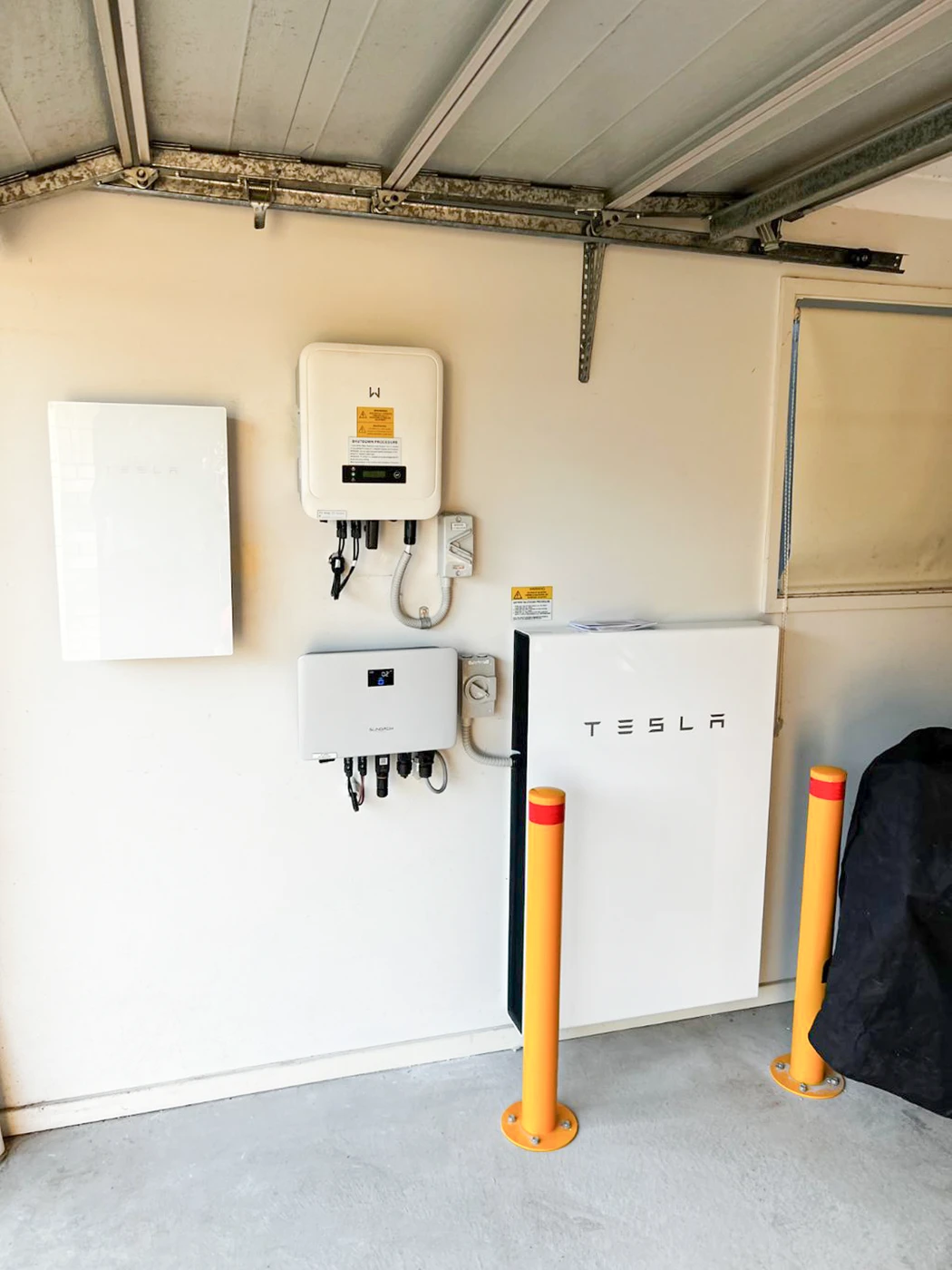
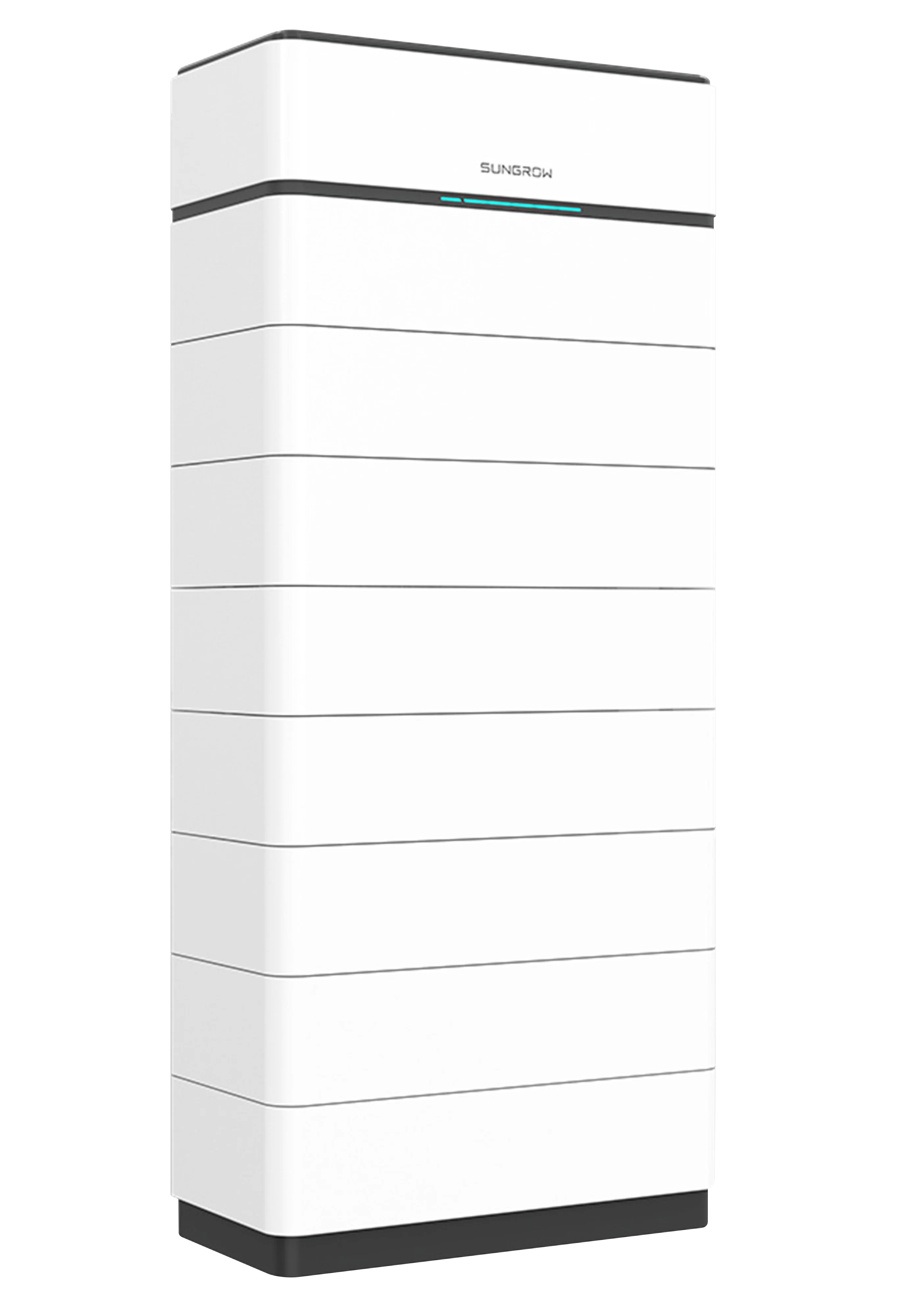
Understanding the difference between alternating current (AC) and direct current (DC) is easier than you might think.
Essentially, both AC and DC refer to how an electrical current flows. DC flows in one direction and is used in battery storage, where AC is dynamic and switches directions which is used in your home and the grid.
Your solar system and battery both use DC, where your home appliances run on AC electricity, so there needs to be a conversion somewhere to accommodate.
Image: Sungrow SBH Series battery
With so many brands, models, capacity, and feature options, where in the world do you start in finding the best energy storage for your home? Well good news, it's not as difficult as it may seem. Whilst we have an article on determining the best battery for homes in Australia, here are some estimated capacity options.
Most homes will use a moderate amount of energy. For the average household where residents are working most of the day, a 13-15kWh battery should be sufficient in helping offset daily consumption.
For flexibility in energy capacity, a 16-20kWh battery will enable a little more excess energy to sell into the grid, and accelerate programs like Amber. It will also support homes with more residents and higher usage.
With higher investment budgets, those who want even more juice in their energy capacity can invest in anything from 20-40kWh+ of energy capacity to really take advantage of feed-in-tariffs and high consumption offsetting.
Both AC and DC-coupled batteries will have their own unique costs including installation labour requirements desired brands and models, capacities, as well as rectification and additional components required.
DC-coupled battery and inverter components are generally more expensive for the capabilities they offer. Hybrid inverters are more expensive than traditional inverters as they enable communication and management for both the solar and battery.
However, depending on the setup, an AC-coupled system may require higher costs. Each property will also have its own set of requirements which indicate varied costs of installation an AC and DC-coupled battery system.
Image: DC-Coupled GEN24 & BYD Battery-Box
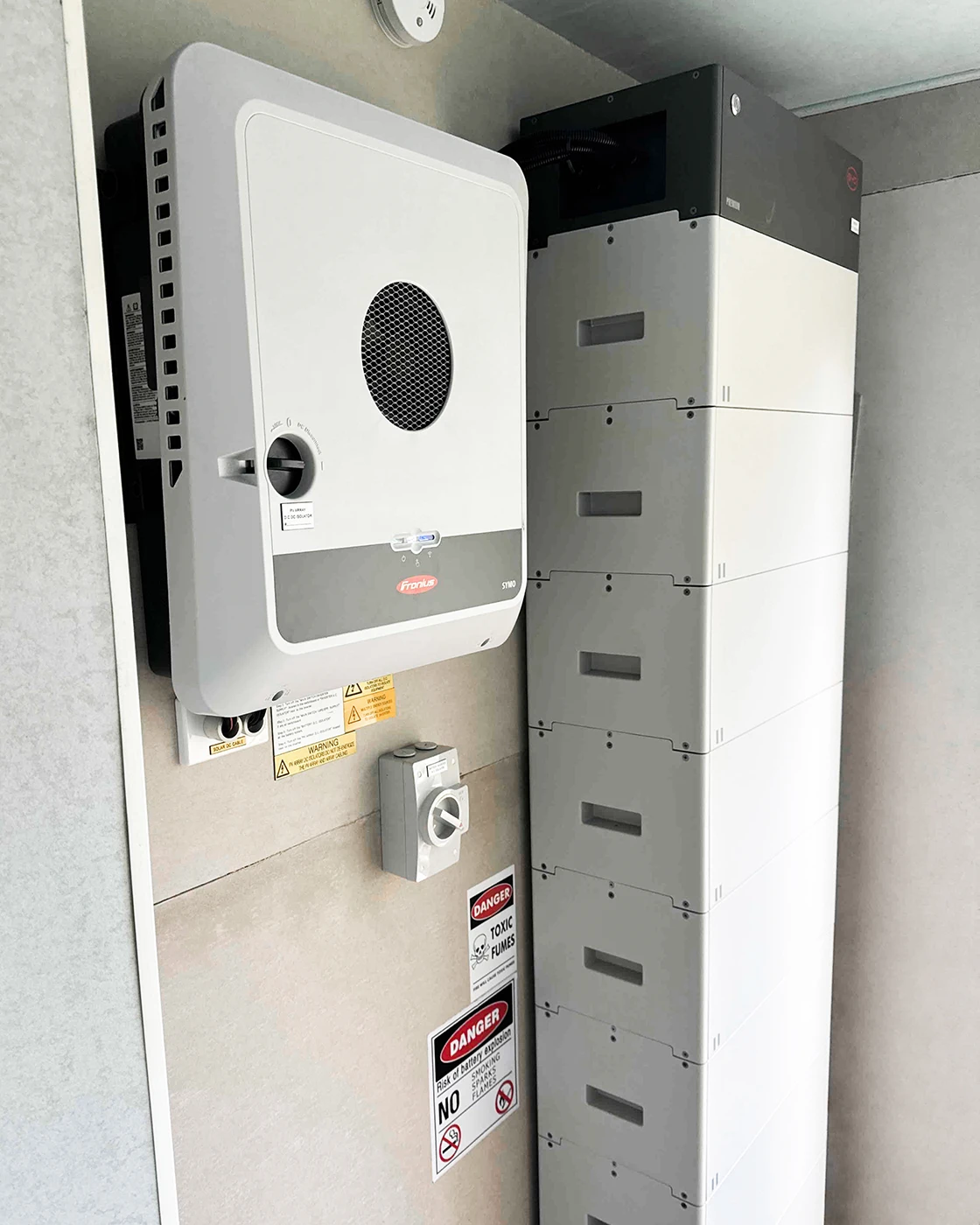
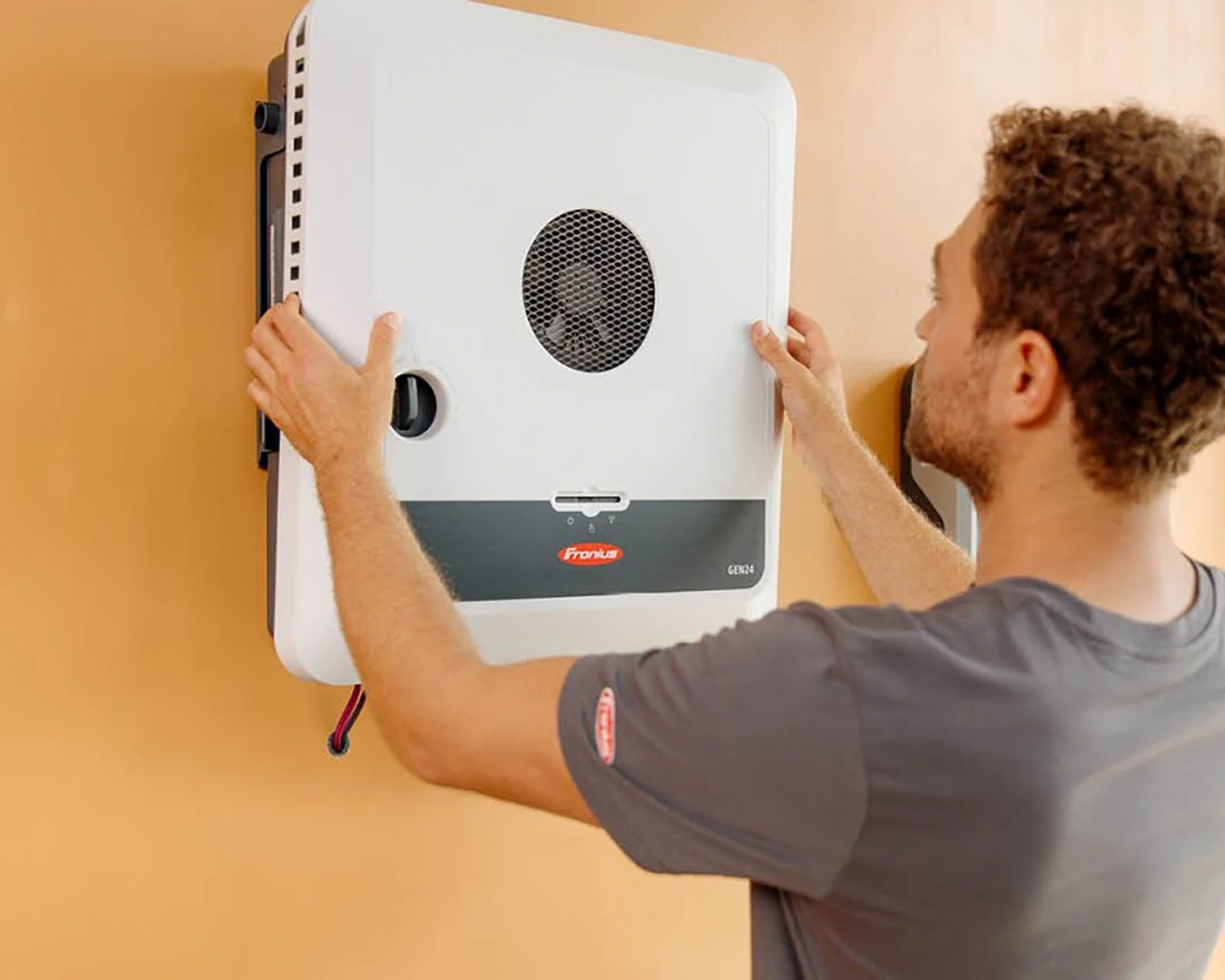
The main difference between traditional solar inverters and hybrid inverters are how hybrid inverters offer features like battery-readiness, and futureproofed upgradability.
What is a Hybrid Solar Inverter? A hybrid solar inverter (also known as battery-ready inverters) are feature-rich solar inverters designed to accommodate DC-coupled batteries and solar management within the single unit.
Being ideal for both on-grid and off-grid systems, a hybrid solar inverter is capable of seamless transitions between grid to solar and battery energy supply.
Hybrid inverters generally offer fewer options for battery compatibility compared to AC-coupled battery and inverter systems, however they are the preferred option for backup solutions for areas with regular grid outages.
Image: Fronius GEN24 Hybrid Solar Inverter
For off-grid properties, DC-coupled battery storage is chosen because of seamless integration with off-grid solar inverters like Selectronic SP PRO's, which manages both solar and battery in the one unit.
Whilst it's not a dealbreaker, knowing you're getting the absolute most efficiency out of your solar system is always ideal, so DC-coupled battery systems are generally preferred by off-grid installers.
Image: Off-grid DC-Coupled PowerPlus Battery Cabinet
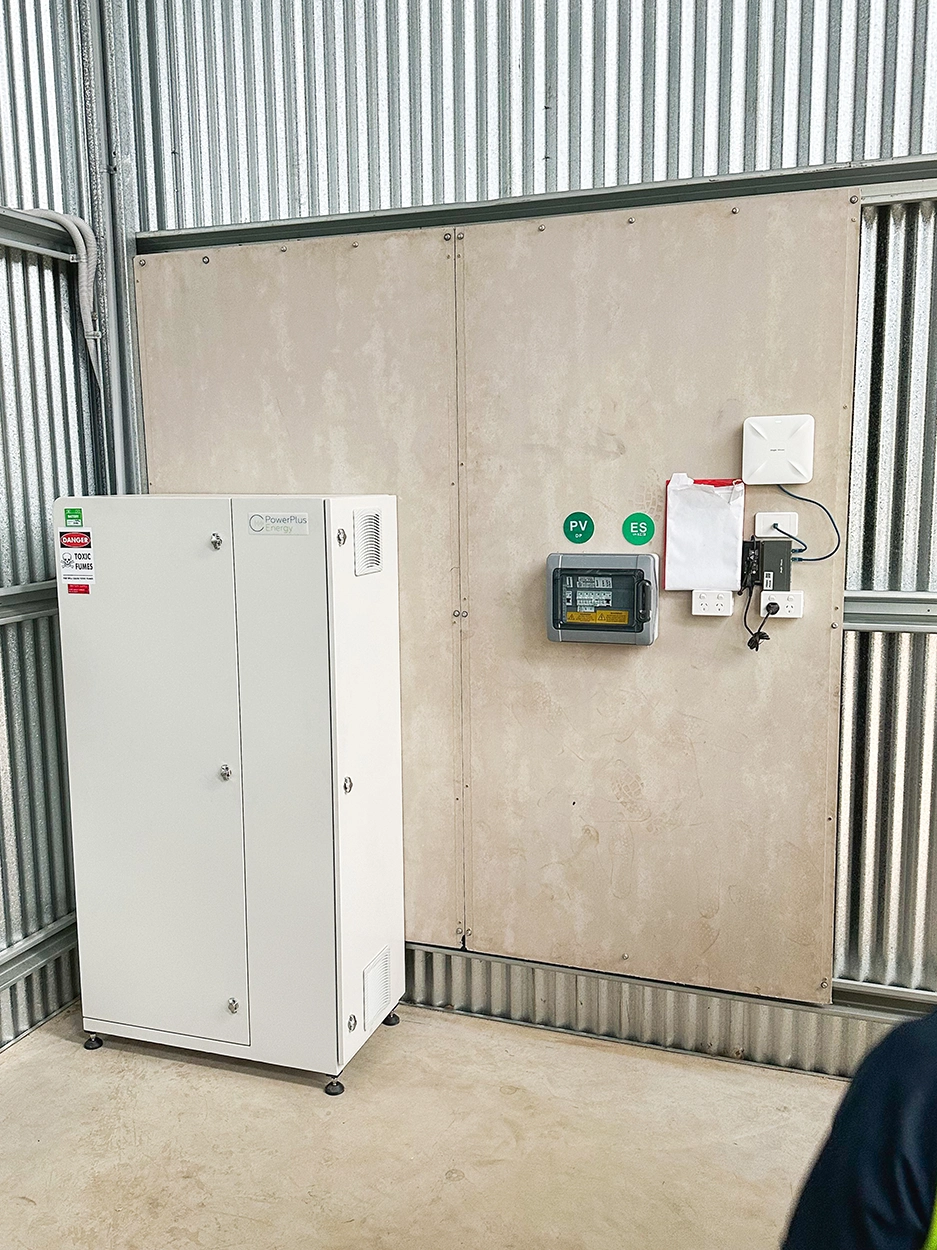
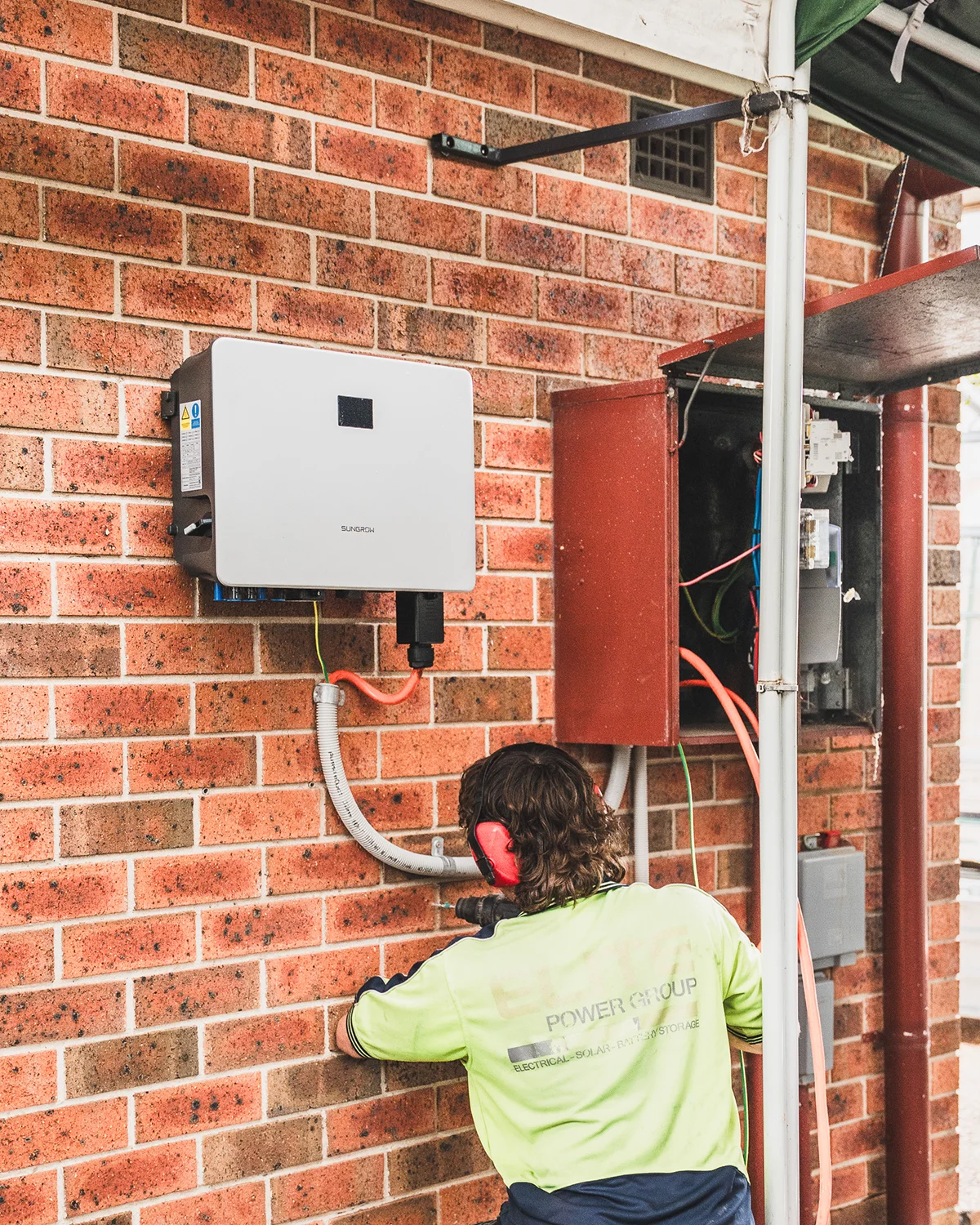
Whether your battery is DC or AC-coupled, it will need to match your property's electrical setup, including if it is single or three-phase to ensure it distributed energy properly.
Hybrid solar inverters can come in both single and three phase options, designed for various home setups across Australia. Traditional inverters can only convert the solar's DC to household AC energy and can't manage the battery.
Most homes are set up on single-phase, where a single-phase hybrid inverter can back up the home's load on the single supply. Businesses and larger properties are generally three-phase, where a 3-phase hybrid solar inverter is required to back up and deliver solar and battery power across all phases.
Single-phase, AC-coupled, grid-tied inverter and battery systems are most common as they are typically the most cost-effective and easiest to install, where three-phase hybrid, DC-coupled battery and inverter systems require careful and tailored planning.
Image: Single-phase Sungrow solar inverter installation.
Depending on whether your battery system is DC or AC-coupled, single or three-phase, it will vary in your power output capabilities.
Whilst sometimes confused with energy capacity, power output refers to the amount of power your battery can supply at any given moment. For AC-coupled battery systems, the power output depends on its internal inverter power specifications.
For DC-coupled batteries like Sungrow and BYD, the battery's power output depends on the inverters capabilities as the inverter is responsible for managing the DC and AC power conversion.
DC-coupled battery systems are generally recommended for households with high power output requirements,
Image: Dual DC-Coupled Sungrow SBR Battery Storage
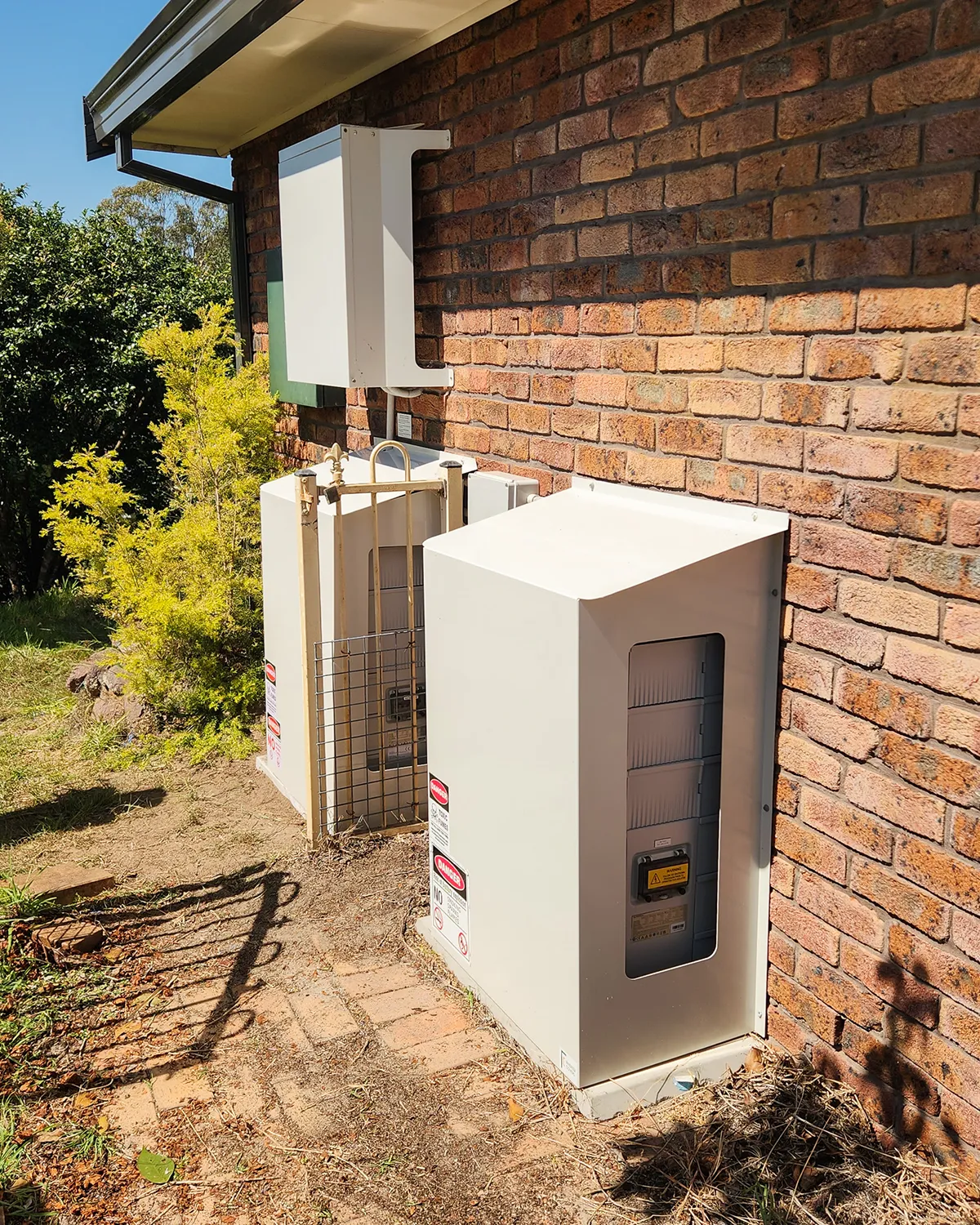
Whether you're an existing solar owner or someone who is looking into getting their first solar system installed, it is definitely recommended to research and determine whether a battery is a good investment for your energy.
Choosing from both DC and AC-coupled systems can both bring benefits to ensure you get a good return on your investment, as well as reliability and future upgrade capabilities.
If you're seriously considering what kind of battery to get, we offer free consultation and quoting for homes and businesses in the Newcastle and Maitland region, with SAA-approved solar and battery designers and installers here ready to help find the optimal, compliant energy system.
Explore the difference between solar inverter types like grid-tied, hybrid, microinverters, and off-grid inverters for solar and battery systems in Australia.
Read moreExplore Australia's first CEC-approved bidirectional and vehicle-to-grid capable electric vehicle, the V2Grid Numbat, a 6.2kW V2G/H charger now ready.
Read moreExplore how battery nominal & useable energy capacity is different to power output, and learn about state of charge, depth of discharge, and cycles.
Read moreExplore the differences between AC and DC electric vehicle charging in Australia and how it affects the way you charge your EV, and the pros & cons.
Read moreConsidering a cheap solar system? Learn how low-quality, unreliable inverters and panels can lead to costly repairs, full replacements, and safety issues.
Read moreVolts vs amps vs watts explained simply. Learn what current is and how watts are calculated using examples & easy conversions for electricity in Australia.
Read moreBattery supply chains are tight across Australia, with shipping delays leaving many installers out of stock and customers waiting longer. What's happening?
Read moreLearn how to avoid solar scams in NSW. Spot red flags & dodgy installer tactics and find reputable companies with great warranty & quality installations.
Read moreExplore the best solar system sizes & how many panels you need, the best Australian solar brands, and cost estimates for 6.6 & 10kW systems in NSW.
Read moreExplore why the delays in vehicle-to-grid and bidirectional chargers are happening, and how V2G faces regulatory and legislative development in Australia.
Read moreOver 56,000 solar batteries were sold in Q2, 2025, thanks to the Australian battery subsidy. Explore solar & battery uptake, growth trends, and what's next.
Read moreDiscover how to choose the right solar battery size for your home. Compare 10kWh, 15kWh, and 20kWh options to maximise savings, and solar in NSW.
Read moreExplore what Virtual Power Plants (VPP) are, if joining is worth it, and how NSW solar battery owners can earn rewards, FiTs & rebates in Australia.
Read moreExplore what solar hotspots are, how they can affect your panel performance & efficiency, & how bypass diodes can affect your cells & strings in Australia.
Read moreExplore the process of installing rooftop solar and battery storage systems in a step-by-step guide of 9 easy steps on how solar is installed in Australia.
Read more
Renewable News Articles
Not only are we specialists in solar power, but we pride ourselves in being leading installers in battery
storage, as well as EV charging for homes and businesses. For solar and battery systems, we offer both on and off-grid solutions for a
range of applications.
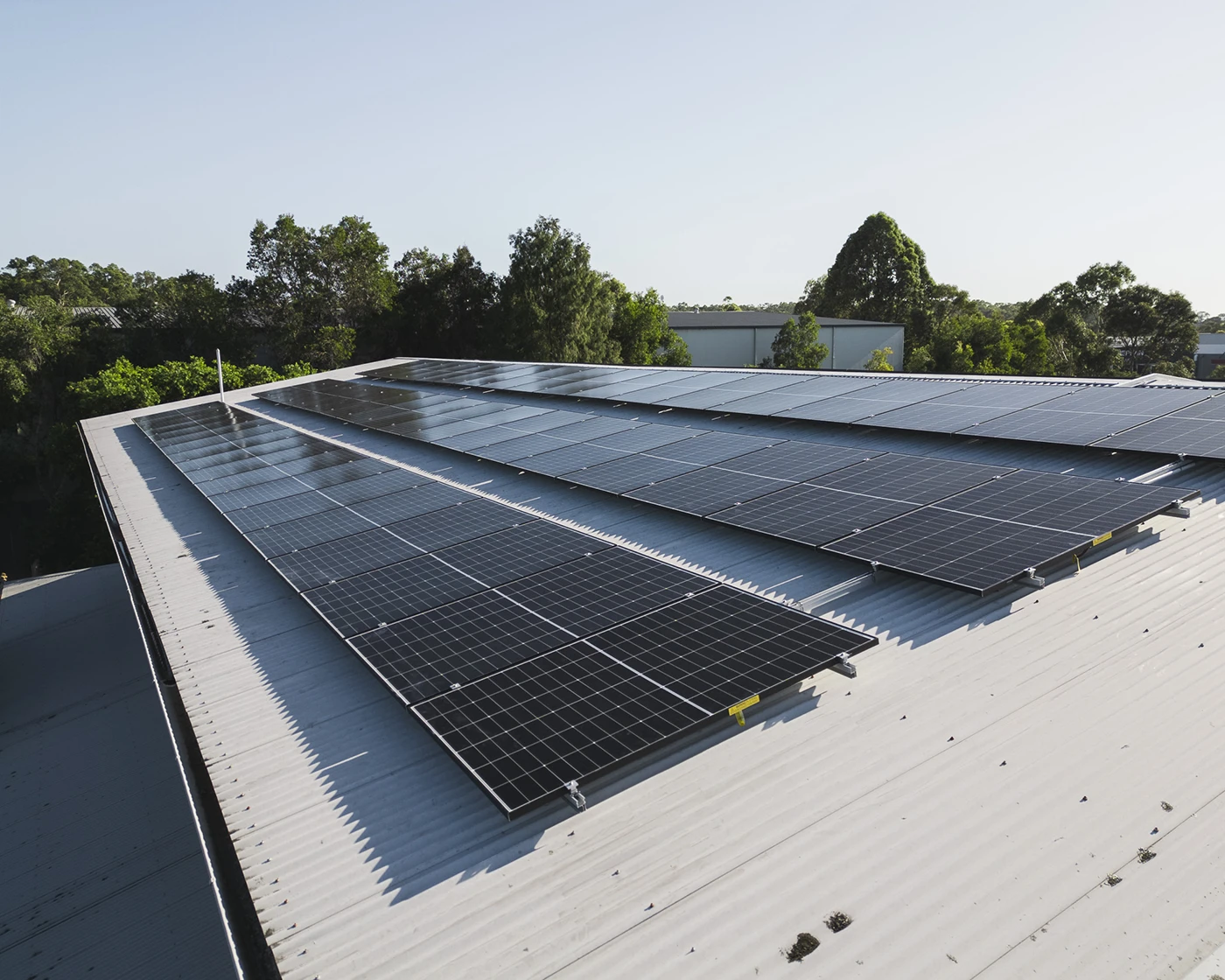
Newcastle's leading solar installers, providing long-lasting residential and commercial rooftop solar systems.
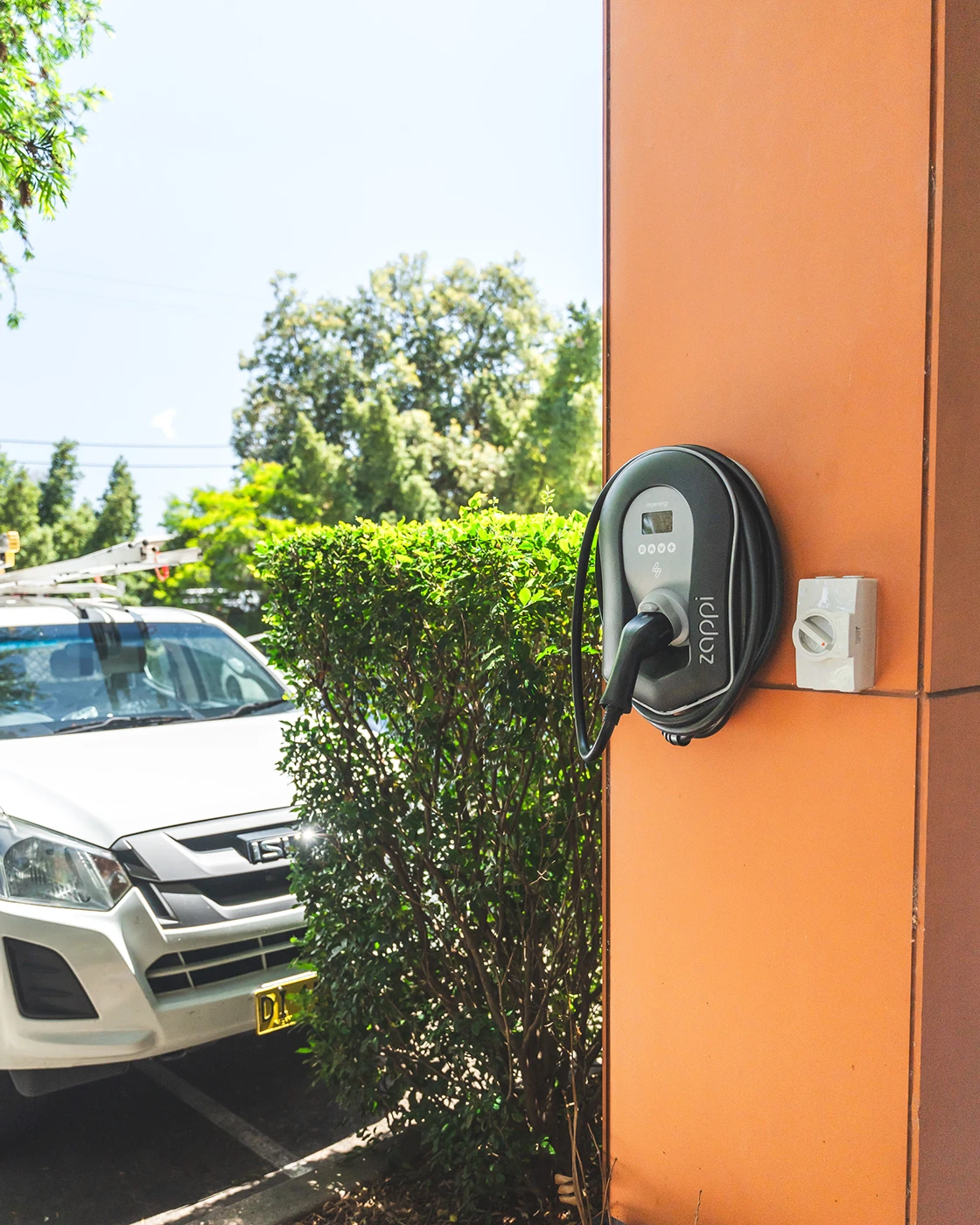
Experts in both residential and commercial electric vehicle charging station installations from 7kW - 360kW+.
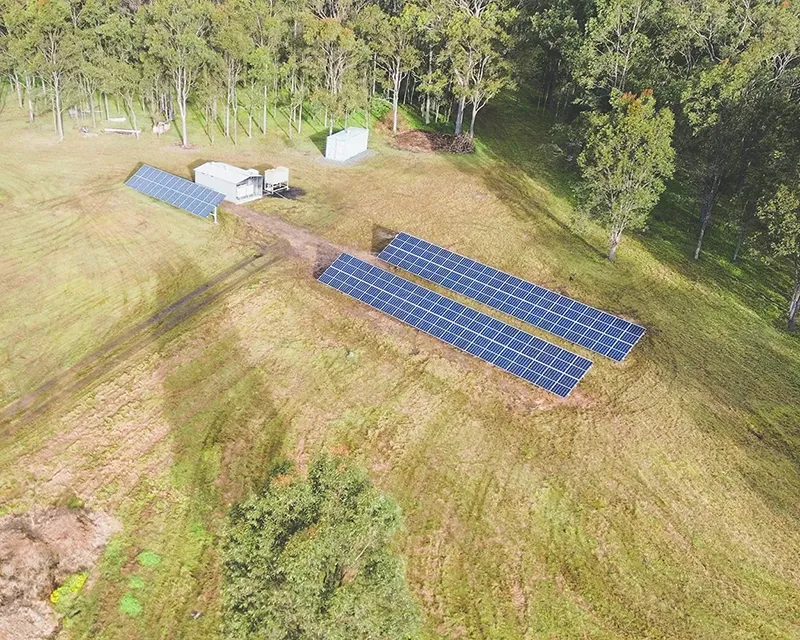
Specialists in off-grid solar and battery, helping properties never have to pay another electricity bill again.
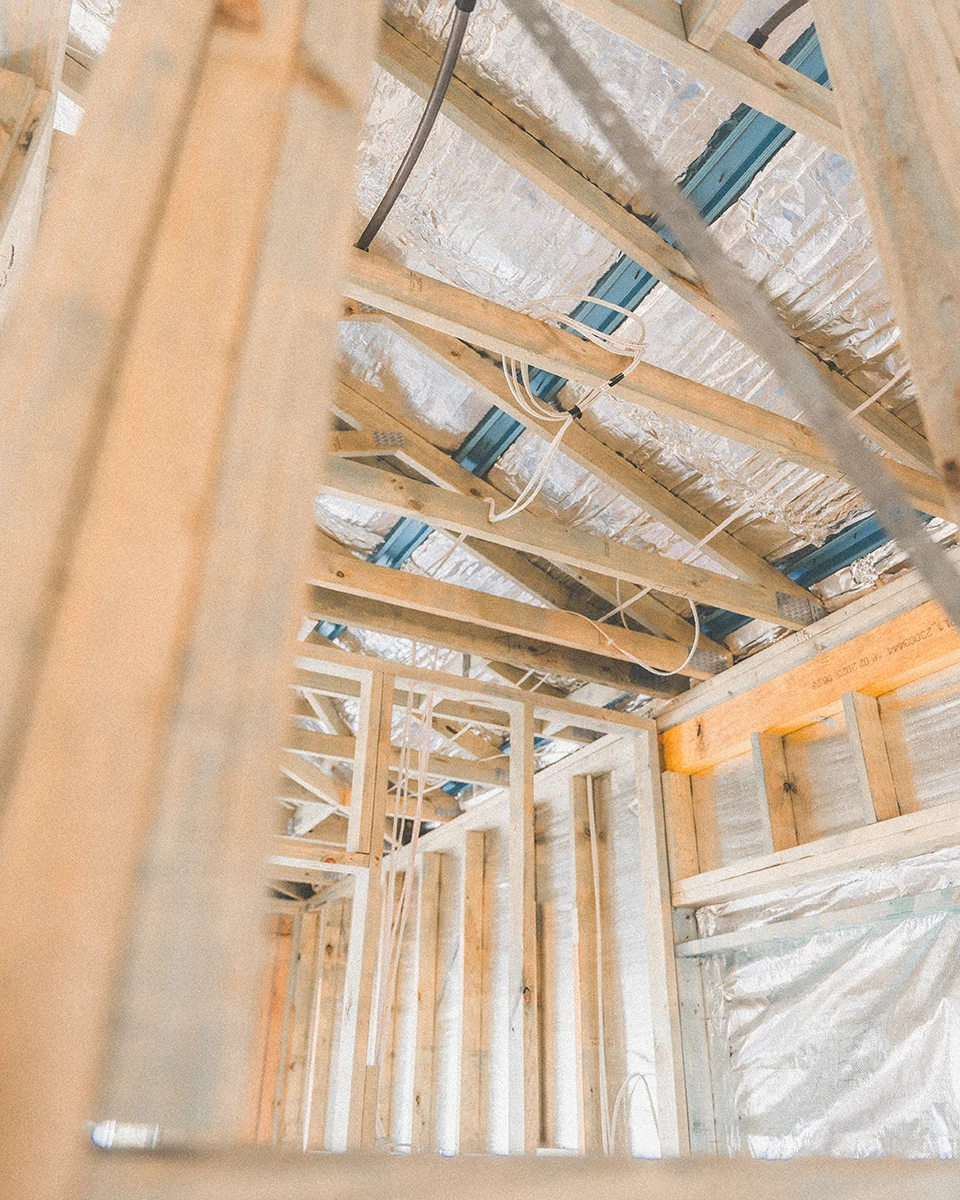
With decades of electrical and industry experience, our fully-qualified & licensed electricians are here to help.
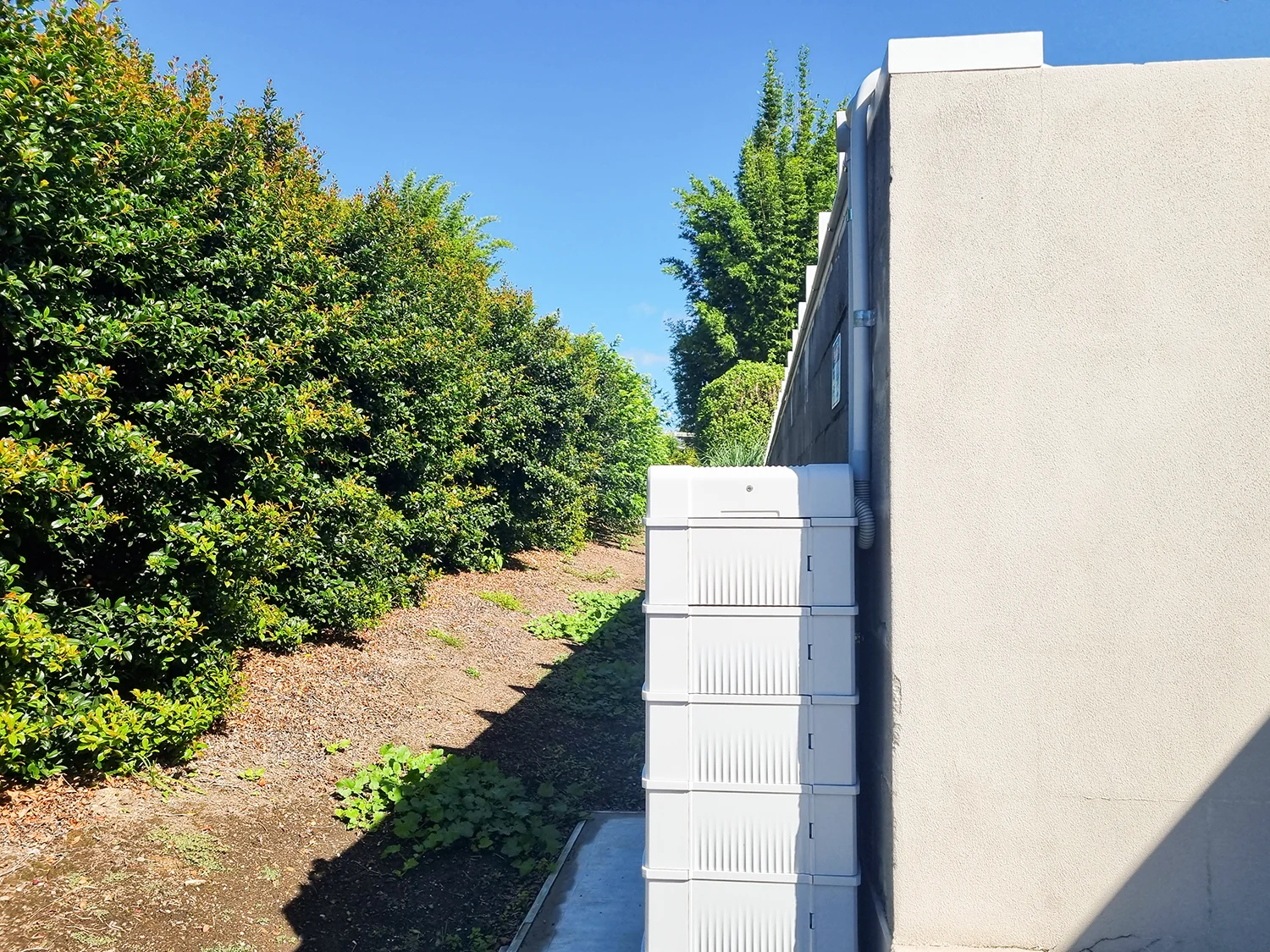
Maximise your solar generation with battery storage from reputable brands to accelerate return-on-investment.
Leave a Comment